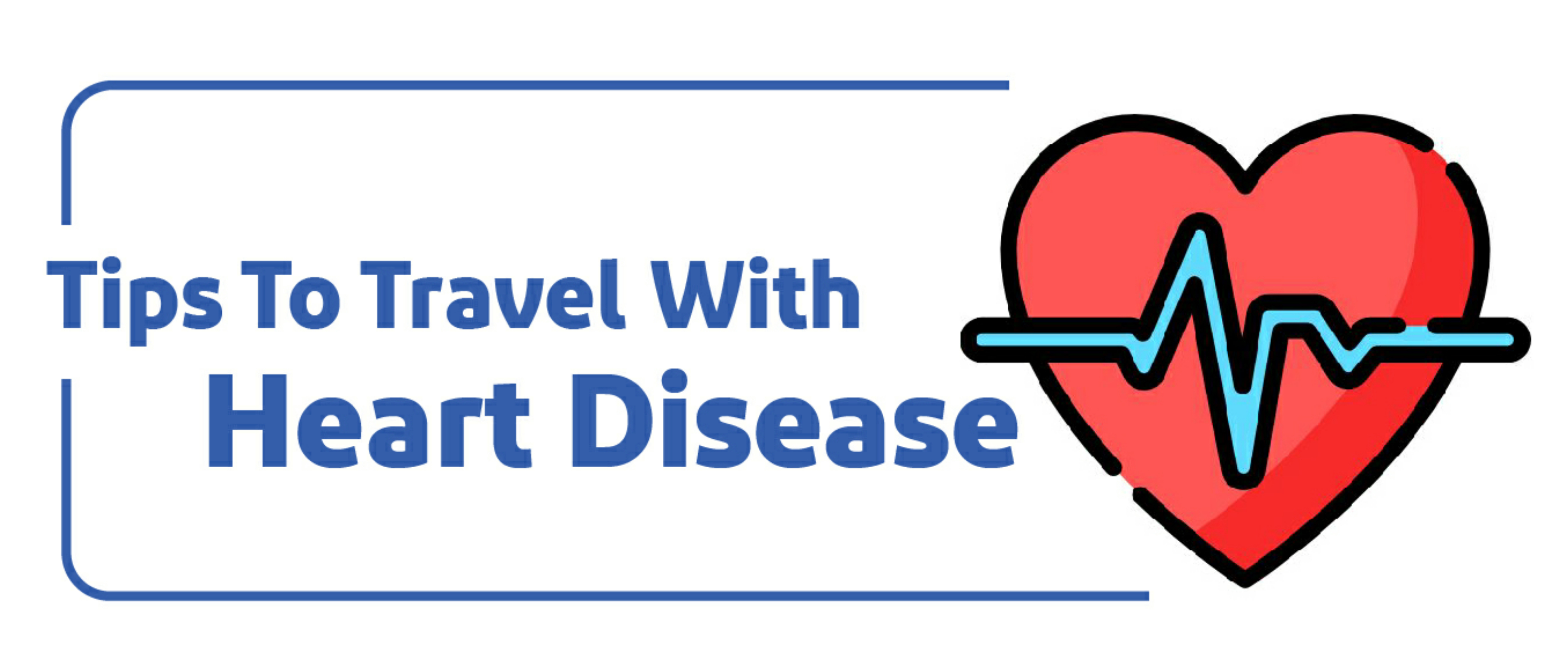
People having heart disease restrict themselves from traveling, particularly to a faraway place.
There are many people all over the world with a variety of physical issues that traveling is one of the most important tasks in their lives. Traveling for heart patients is not a difficult task at all.
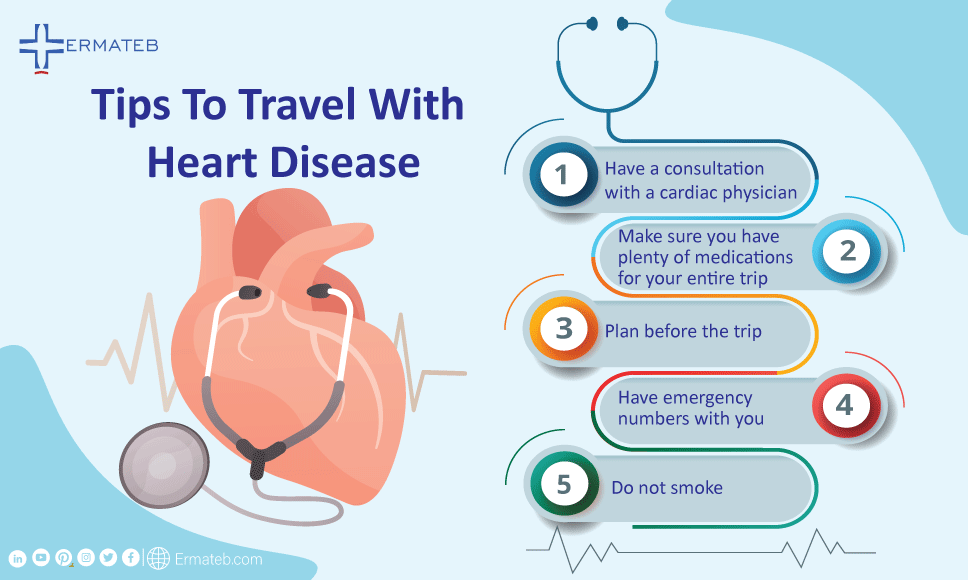
If you have heart disease, you can fly safely as a passenger on an airplane in case of following some tips:
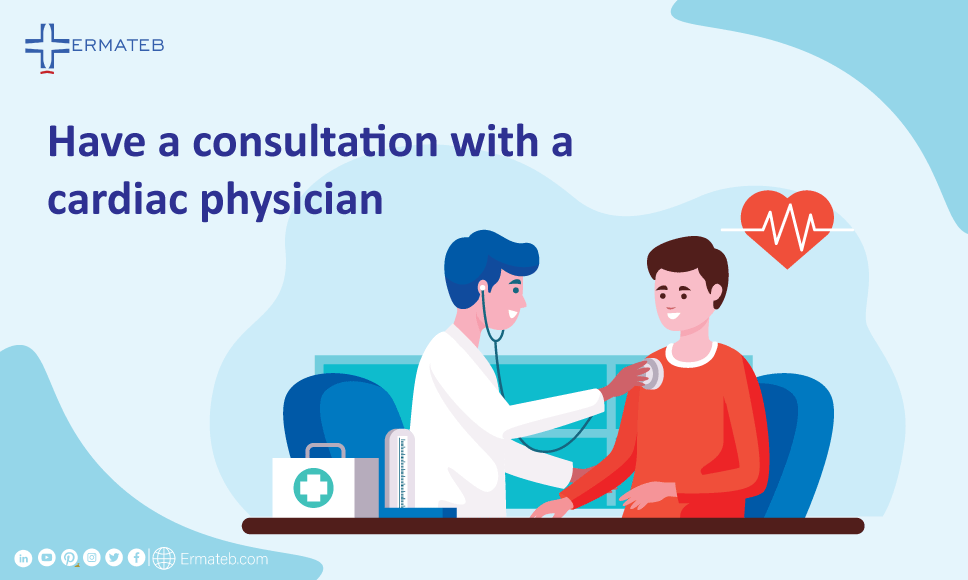
1. Have a consultation with a cardiac physician:
Before starting your trip, it would be better to talk to a specialist.
Doing so helps people with heart disease to be informed about their heart condition and provides safe traveling for them.
Our heart surgery specialists at ermateb may want you as a patient with heart disease, to have all needed tests such as ECG or EKG Echocardiogram, CT scan, and MRI besides blood tests and a chest X-ray, to diagnose your heart disease to reduce your stress and give you an assured feeling.
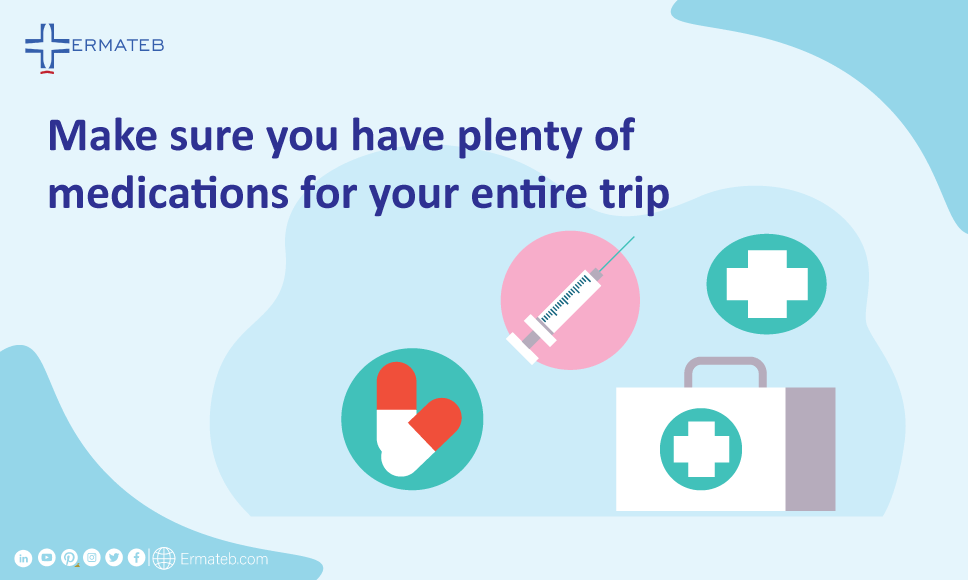
2. Make sure you have plenty of medications for your entire trip:
Take the medication you need with you and make sure it is enough for the entire duration of your trip. Medicines for heart patient travelers are one of the most important parts of their journey.
If you are taking less medicine, be sure to consult your doctor before traveling on the dosage.
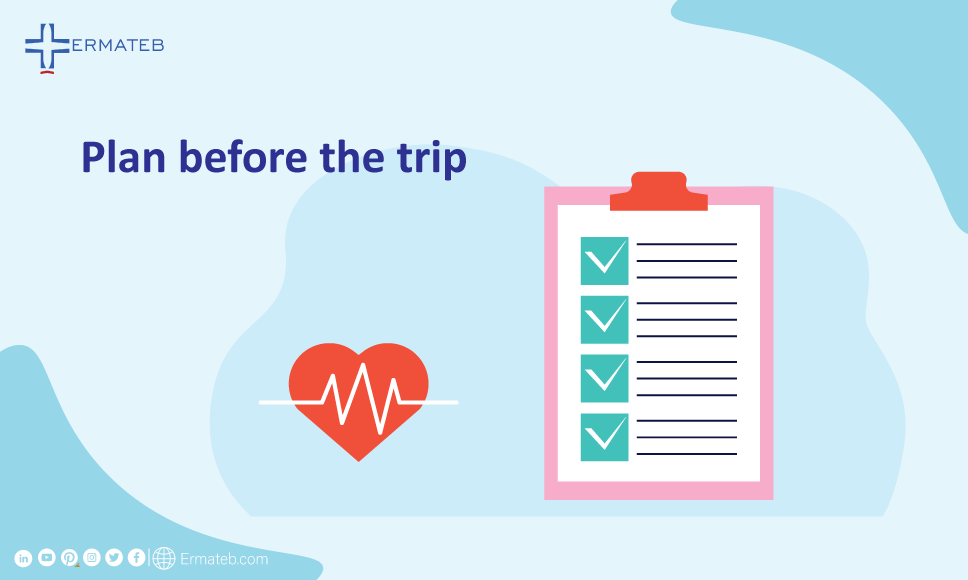
3. Plan before the trip:
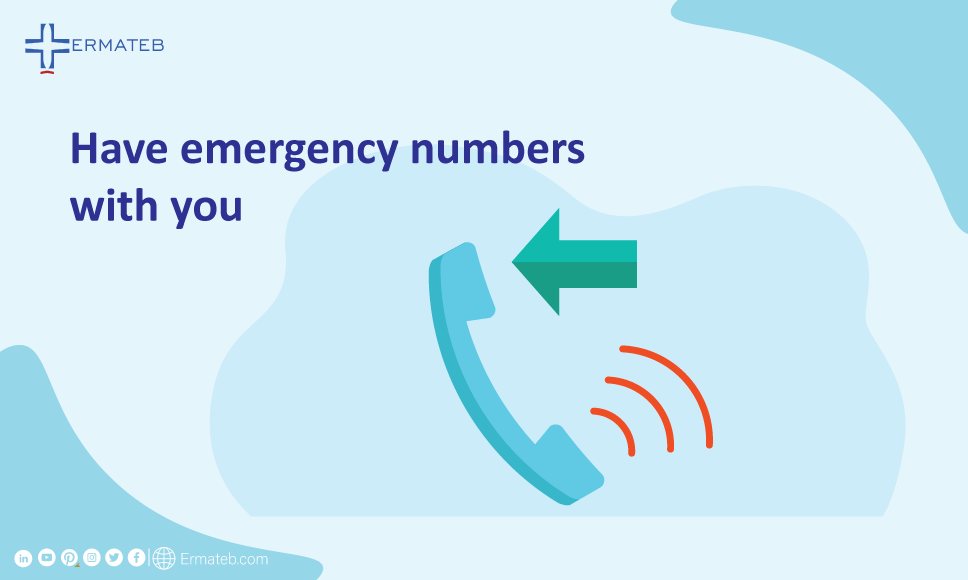
4. Have emergency numbers with you:
Bring your cardio doctor's number with you during the trip, if you are using ermateb services, benefit from our guidance and contact us, when having any question,
Always have emergency information about your special conditions and illnesses with you and give this information to people you know.
Be sure to bring the web addresses of the pacemaker and ICD.
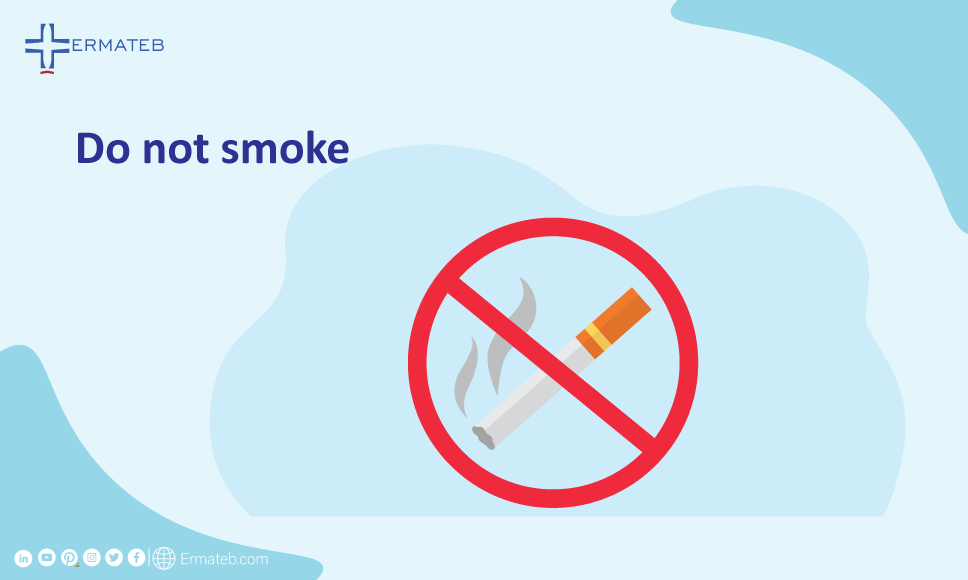
5. Do not smoke:
Not only Smoking increases the risk of heart disease, but it also increases heart problem patient's anxiety and stress. Smoking should be seriously avoided at all stages of the trip.
During trip:
1. A wheeled suitcase so that you do not have to lift heavy objects:
Be sure to bring a light handbag as well as a wheeled suitcase.
On the plane, inform the flight service providers about your heart disease and ask for a seat in the hallway. So that you can easily stand and move a little.
If your flight is long, the risk of blood clots (venous thrombosis) increases. When you sit for long hours and the oxygen level in the cockpit is low, your blood pressure drops and you increase your risk of getting sick.
2. Follow your regular diet:
Continue your regular diet. Make sure you drink plenty of watery foods during the trip to avoid dehydration.
3. Walk
During the flight, get up at least once every hour or two and walk down the aisle.
4. Choose the right shoes.
Wear comfortable shoes and socks and raise your legs for a few seconds whenever you can.
Wear comfortable shoes and socks and whenever it was possible, lift your legs for a few seconds.
5. Have varicose socks.
These socks should be worn if your flight is too long.
6. Drink water.
During the flight, due to air pressure and cabin dryness, there is a possibility of dehydration, so it is better to drink water regularly.
7.Provide travel health insurance
If a person has undergone an angioplasty where a balloon is used to stretch open a narrowed or blocked artery. However, most modern angioplasty procedures involve inserting a short wire-mesh tube, called a stent, into the artery during the procedure, then a waiting period of one week is recommended before flight travel. The higher you are in the sky, the less oxygen your body will carry, and less oxygen means higher blood pressure.
On long plane flights, if someone has peripheral artery disease (PAD) also called a vascular disease, or a history of heart failure, the clot risk increases. Getting up and walking around when possible is recommended for long flights, just be sure the seatbelt light is not on when you do so.
Tell your doctor about your travel plans to get the best advice on what to avoid and be cautious about. For example, some people might need compression stockings or additional oxygen. Others might need to watch fluids closely or avoid alcohol. And some may not be able to fly.
Security at the airport:
You may get stopped at the airport if you have an implanted medical device such as a pacemaker or implanted cardiac defibrillator (ICD). Therefore, carry a letter from your doctor or cardiologist specifying the device manufacturer, brand, model name and number, and date of insertion. Show the letter to security personnel.
Environment:
Avoid extremely hot or cold environments and destinations with heavy air pollution, all of which put additional stress on your heart.
Stress:
The stress of flying and navigating airports can take a toll on your health. Plan a low-stress route by arriving early at the airport, pack your suitcase a week earlier so that you won’t get nervous near the time of your flight. Ask for help from one of your family members or a friend to help you out throughout your vacation time.
Find a doctor abroad:
Aside from your own doctor, it’s good to find a new doctor abroad in case of emergencies. Let your doctor know about your medical history and your drug use as well. Be careful about dietary changes, alcohol consumption, and new medications, consult your doctor at all times before taking any actions.
If you follow the tips above, you will have a comfortable and hassle-free trip. However, medical assistance may be needed during the trip, and it is better to take out travel health insurance for travel with heart disease that covers hospitals or doctor's office visits and prescriptions in that city or country. Undoubtedly, by observing these points, you will experience good travel and health. Ermateb, our medical tourist company, covers travel insurance plan that protects your health and your trip expenses, Emergency Medical Insurance and Lost/Stolen baggage
Ermateb Health Tourism Services has made this effort to provide patients a variety of services related to cardiovascular surgery with the help of its specialist doctors and also the unique equipment.
Doctors in this field have a lot of expertise and therefore can best fulfill their responsibilities related to the treatment of heart problems.
You can contact us via:
Visit us on Twitter:
Follow us on Instagram:

